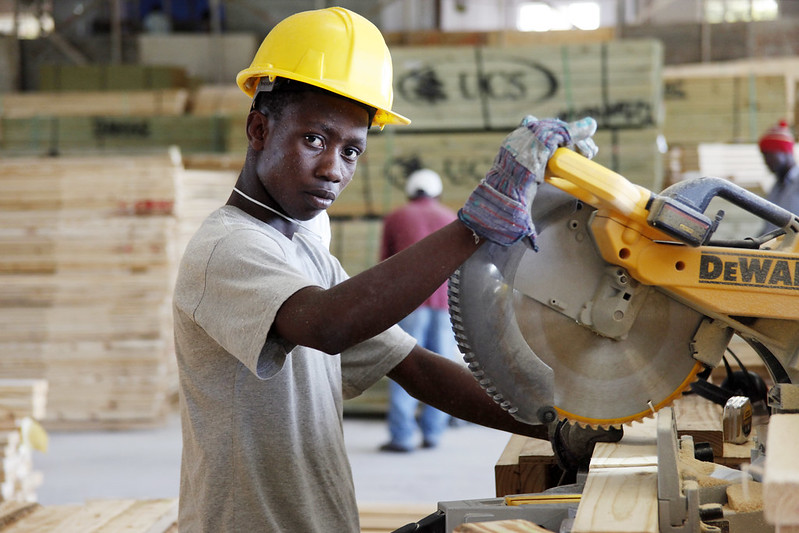Recommended
In the Gulf Cooperation Council (GCC) one’s migration status is tied to their employer, not to the state. In this system, called kafala, employers have control of migrant’s statuses—including whether they can switch jobs, travel within the host country, or leave the country. Infamously, this system has led to the exploitation and abuse of migrants. While reforms are coming—be it incrementally—the COVID-19 pandemic has exacerbated the kafala system’s weakness and caused many to question whether it will mark the end of the system altogether.
COVID-19’s impact on the kafala system
The COVID-19 pandemic has further highlighted the vulnerabilities of migrant workers in the GCC. Migrants are at greater risk of contracting COVID-19 due to inadequate health care, poor economic conditions, and overcrowded living situations. These risks become even more evident in the figures which show that migrants make up the majority of the 500,000 plus COVID-19 cases in the Gulf States. Thousands of migrants have been stranded due to travel bans and unaffordable tickets home, and hundreds of thousands have not been paid wages due to them.
Moreover, hundreds of thousands of migrant workers have been repatriated (voluntarily or involuntarily) due to job losses during COVID-19. The International Monetary Fund (IMF) predicts that the GCC countries will see their economies shrink by 7.6 percent in 2020. This, on top of low oil prices, has caused massive unemployment and unpaid wages due to failing businesses or theft. Oxford Economics estimates that more than 3.5 million migrant workers will be forced to leave the region. 500,000 migrant workers from Kerala alone are expected to repatriate by the end of 2020 as India undertakes one of the largest repatriation efforts in history.
The increased attention to migrant vulnerabilities under kafala as well as the mass repatriation of workers has raised the question: will COVID-19 mark the end of the kafala system in the Gulf? Already, historic reforms to the kafala have been enacted during the pandemic. As of September 2020, migrant workers in Qatar can change jobs without needing to obtain their employers’ permission, effectively “dismantling”” kafala. Other Gulf governments have enacted measures to improve the situation of migrants during the pandemic, including expanding access to free healthcare, visa extensions, and forcing private companies to provide accommodation to migrants, and even prior to the outbreak of COVID-19, Saudi Arabia was publicly considering significant reforms to its kafala system.
More changes to come?
Is Qatar a signifier of bigger changes to come for the kafala? From a self-interested standpoint, there are good reasons for Gulf governments to dismantle their kafala systems. The COVID-19 era has shown this clearly: as noted above, migrant workers make up the majority of COVID-19 cases in the GCC, a direct result of living conditions associated with kafala. Migrant workers also refrained from taking time off when they were sick for fear of losing their jobs, driving initial COVID-19 spread among migrant workers but GCC citizens as well.
Kafala systems also do not make economic sense for Gulf governments and employers. Kafala ties workers to employers, undermining productivity. In Dubai, this resulted in inefficiencies totaling 6.6 percent of total costs and 11 percent of profits on average. Such rigid policies are particularly harmful in times of crisis; it traps workers with an employer who can’t pay their salary while other employers struggle to recruit workers. Recognizing this, the UAE announced a new Virtual Labor Market platform to recruit individuals from other companies that have a surplus of foreign staff.
Then there is the deeper issue that as the economy picks back up, employers will need workers back. The UAE, Saudi Arabia, and Qatar have resumed recruitment of migrant workers as their economies re-open. But will the workers come? Some, looking at their employment options in the Gulf under kafala in the COVID-19 era, have decided that they can find better opportunities and decided to return home for good. Speaking to the Wall Street Journal, Zeina Ammar, advocacy manager for the Anti-Racism Movement, a Lebanese grass roots group, noted “Migrant workers are unable to send money back home. The whole purpose of staying here has disappeared.” This gives migrant workers (and sending countries) some bargaining power, and is behind many questions as to whether Qatar’s reform is the beginning of the end for kafala.
Sending country governments also have more negotiating power now, as GCC countries will be reliant on sending countries to ensure that the resumed migration flows happen in an orderly and legitimate fashion and workers arrive COVID-free. The second bit is especially key, as concerns around fraud have already been legitimized. GCC countries will need cooperation from sending country governments to build systems they can trust. The need for cooperation opens an opportunity for sending countries to negotiate improved conditions before beginning returns.
Bigger forces than COVID-19 will determine future of kafala
Despite these pressures, it would be hasty to project Qatar’s reforms on to the rest of the GCC. Qatar and Lebanon are not the UAE and Saudi Arabia; well before the onset of COVID-19, both had deep economic troubles and weakening labor markets. For them, prospective migrants may well indeed be able to find better opportunities elsewhere, and revising the kafala is one way of making these countries more attractive as destinations.
GCC countries such as the UAE and Saudi Arabia remain attractive destinations for migrant workers. Labor mobility to the Gulf countries has long been one of the largest poverty alleviation programs in the world. Nepali women who repatriated during COVID-19 reported financial stress and difficulty finding employment; 43 percent reported wanting to seek abroad again when migration flows resume. Indian migrant workers reported staying on in the Gulf throughout the crisis, accepting significantly reduced pay or even months of no pay in order to have the opportunity to keep earning money in the Gulf once the economy improves.
The kafala system has perpetuated because the number of people interested in migrating is far larger than the number of opportunities.
This readily available pool of labor means that Gulf countries have little incentive to radically alter their systems. The kafala system has perpetuated because the number of people interested in migrating is far larger than the number of opportunities. This has led to a race to the bottom where sending countries maintain low standards in order to compete with each other for limited jobs, allowing the kafala to perpetuate.
While COVID-19 has not fundamentally changed these dynamics, another looming crisis may. OECD countries are falling off a demographic cliff; their aging populations and shrinking working age populations imply a historic need for new workers. Under one scenario, OECD countries are projected to need on the order of 400 million additional workers by 2050 to maintain the viability of their current pension and health schemes. While to date they have remained largely closed to migrant workers (certainly relative to Gulf countries), these demographic pressures strongly suggest they will need to begin opening their labor markets. When this happens, they will be competing with Gulf countries for migrant workers, and this will in turn force GCC to increase standards if they want to retain their workforce. This dynamic has already emerged with regards to nurses; migrant nurses reportedly view GCC countries as a stopping point to build their credentials in order to get a job in the US or Europe, resulting in very high turnover for GCC countries.
Is COVID-19 the end of the kafala? Not likely
The GCC has been able to maintain the kafala system because there have historically been few migration opportunities elsewhere. What would weaken their bargaining power (and thereby the kafala) is other labor markets becoming more open to foreign workers. This is a longer term dynamic than the current crisis, but examples are already emerging. For instance, traditional sending countries to the GCC are beginning to look towards Japan for new opportunities as it opens its labor market. So is COVID-19 the end of the kafala? Not likely. For that, we need to open new and better migration opportunities elsewhere.
Disclaimer
CGD blog posts reflect the views of the authors, drawing on prior research and experience in their areas of expertise. CGD is a nonpartisan, independent organization and does not take institutional positions.
Image credit for social media/web: UN Women/ Joe Saade/Flickr






